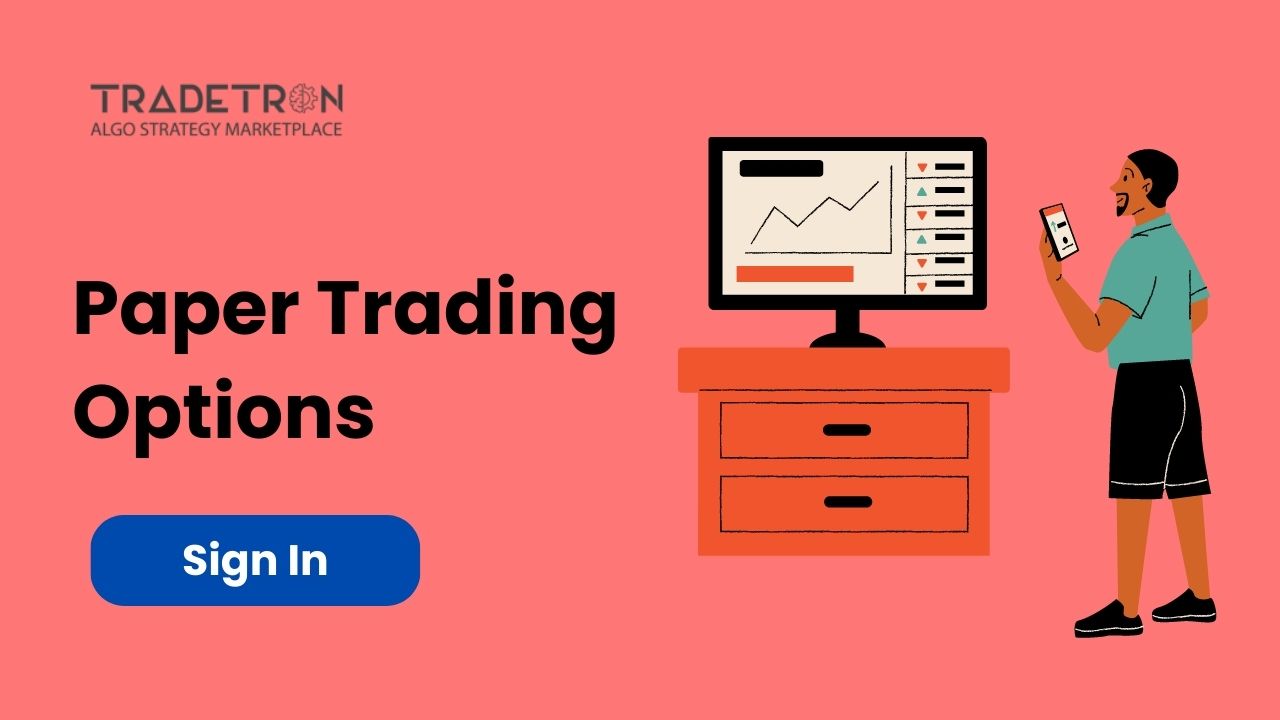Contents
- Introduction
- Paper Trading Options: Understanding the Basics
- Purpose and Benefits of Paper Trading Options
- Getting Started with Paper Trading Options
- Choosing the Right Platform
- Opening a Paper Trading Account
- Setting the Virtual Capital
- Defining Your Trading Goals
- Strategies for Successful Paper Trading Options
- 1. Studying Option Basics
- 2. Analyzing Market Trends
- 3. Implementing Different Option Strategies
- 4. Risk Management
- 5. Keeping a Trading Journal
- 6. Emulating Real Trading Conditions
- Frequently Asked Questions About Paper Trading Options
- Can paper trading help in improving my real trading performance?
- Are paper trading results always reflective of real trading outcomes?
- Are there any downsides to paper trading options?
- Can I paper trade options on any trading platform?
- How much time should I dedicate to paper trading before moving to real trading?
- Conclusion
- Frequently Asked Questions About Paper Trading Options
Introduction
Welcome to the exciting world of paper trading options! Whether you're a seasoned trader or a beginner in the financial markets, paper trading options offer an invaluable opportunity to practice, learn, and refine your trading skills without risking real money.
In this comprehensive guide, we'll explore the ins and outs of paper trading options, providing you with the necessary knowledge and expertise to excel in virtual trading.
Paper Trading Options: Understanding the Basics
Before diving into the details, let's start with the basics of paper trading options.
What is Paper Trading?
In the financial world, paper trading, also known as virtual trading or simulated trading, refers to a practice where traders execute trades without using real money.
Instead, they use virtual or simulated accounts, often provided by brokerage platforms, to replicate real-market conditions without risking their capital.
Purpose and Benefits of Paper Trading Options

Mastering Option Trading Strategies
Paper trading options allow traders to experiment with various option trading strategies and understand their risk-reward dynamics in a risk-free environment.
Gaining Confidence
By practicing with paper trading options, traders can build confidence in their decision-making abilities, especially when facing complex market scenarios.
Understanding Market Dynamics
Paper trading provides an opportunity to observe market trends and behaviors, enabling traders to gain insights into price movements and volatility patterns.
Getting Started with Paper Trading Options
Choosing the Right Platform
Select a reputable brokerage platform that offers paper trading options with realistic market conditions and a wide range of option instruments.
Opening a Paper Trading Account
Create a paper trading account with your chosen brokerage and explore the platform's features and tools.
Setting the Virtual Capital
Decide on the amount of virtual capital you want to trade with. Opt for an amount that mirrors your actual trading budget to make the experience more realistic.
Defining Your Trading Goals
Set clear objectives for your paper trading journey. Whether it's learning new strategies or refining existing ones, having defined goals will keep you focused and motivated.
Strategies for Successful Paper Trading Options
1. Studying Option Basics
To excel in paper trading options, start with a solid understanding of option fundamentals, including call and put options, option pricing, and option strategies.
2. Analyzing Market Trends
Use technical and fundamental analysis techniques to identify market trends and potential opportunities for profitable trades.
3. Implementing Different Option Strategies
Practice various option trading strategies, such as covered calls, straddles, and spreads, to gain experience in different market conditions.
4. Risk Management
Learn to manage risk effectively by setting stop-loss levels and adhering to risk-to-reward ratios in your virtual trades.
5. Keeping a Trading Journal
Maintain a trading journal to record your paper trading experiences, decisions, and outcomes.
Analyzing your journal can help you identify areas for improvement.
6. Emulating Real Trading Conditions
Treat paper trading as seriously as real trading by replicating real-market conditions, including trading hours, account balance, and transaction costs.
Frequently Asked Questions About Paper Trading Options
Is paper trading options suitable for beginners?
Yes, paper trading options are perfect for beginners as it allows them to practice trading without risking real money.
Can paper trading help in improving my real trading performance?
Definitely! Paper trading helps build confidence and enhances trading skills, which can positively impact real trading performance.
Are paper trading results always reflective of real trading outcomes?
While paper trading provides valuable experience, real trading involves emotions and real-money risks that can affect outcomes differently.
Are there any downsides to paper trading options?
One potential downside is that paper trading doesn't fully replicate the psychological impact of real trading.
Can I paper trade options on any trading platform?
Most online brokerage platforms like Tradetron offer paper trading options for their users.
How much time should I dedicate to paper trading before moving to real trading?
There is no fixed time frame, but it's advisable to paper trade until you feel confident in your abilities.
Conclusion
In conclusion, paper trading options is an essential step for traders of all levels to refine their skills, test new strategies, and gain valuable experience in the financial markets.
By understanding the basics, implementing effective strategies, and practicing consistently, you can leverage the power of paper trading options to become a successful trader.
So, don't wait start your paper trading journey today and unlock your trading potential!
Frequently Asked Questions About Paper Trading Options
What is paper trading options, and how does it work?
Paper trading options is a simulated trading practice where traders execute virtual trades without risking real money.
It allows traders to experience the dynamics of the financial markets without incurring any financial losses.
In paper trading options, traders use virtual accounts provided by brokerage platforms to buy and sell options based on real-time market data.
Paper trading options offer numerous advantages to traders of all levels, making it an essential tool for skill development and strategy testing.
Some of the key benefits include:
Important Information:
Skill Development: Paper trading allows traders to hone their trading skills and gain confidence without risking capital.
Strategy Testing: Traders can experiment with various option trading strategies to identify which ones work best for their trading style.
Risk-Free Environment: Since no real money is involved, paper trading eliminates the fear of losing funds, making it ideal for learning.
Can I use paper trading options as a beginner?
Absolutely! Paper trading options is an ideal starting point for beginners.
It allows you to gain hands-on experience, practice trading strategies, and develop your trading skills without risking real money.
Is paper trading options similar to real trading?
While paper trading options replicates real-market conditions, there are some differences.
Real trading involves emotions and the fear of financial losses, which can impact decision-making differently.
Can you do options on paper trading?
Yes, you can definitely do options trading on paper trading platforms. Paper trading is a simulated form of trading where users practice buying and selling financial instruments without risking any real money.
It allows traders to gain experience and test different strategies in a risk-free environment.
Options are a type of derivative that gives investors the right, but not the obligation, to buy or sell an underlying asset at a predetermined price within a specified time period.
Paper trading platforms often offer options as part of their simulation tools, allowing traders to explore the intricacies of option contracts without incurring any actual financial loss.
When using options on paper trading platforms, users can choose from various types of options such as calls or puts and experiment with different strike prices and expiration dates.
They can analyze market trends, track option prices in real-time, initiate trades based on their predictions or strategies, and monitor how these positions would perform if they were executed with real money.
Is paper trading options accurate?
Paper trading options can be a valuable tool for learning and practicing options trading strategies, but it may not always accurately reflect real-world market conditions.
While paper trading allows investors to simulate trades without risking actual money, there are several factors that limit its accuracy.
Firstly, paper trading platforms often use delayed or simulated market data instead of real-time prices. This discrepancy can lead to unrealistic fills and inaccurate profit/loss calculations.
Moreover, the absence of slippage and liquidity concerns in paper trading fails to mirror the challenges faced when executing orders in live markets.
Additionally, emotions play a significant role in actual trading but are absent from paper trading.
The fear of losing real money or the exhilaration of making profitable trades affects decision-making processes differently than when using virtual funds.
Consequently, risk management skills developed through paper trading may not translate perfectly to real-life scenarios.
Is paper trading free?
Yes, paper trading is generally free. Paper trading refers to a simulated form of trading where individuals can practice buying and selling assets without using real money.
It allows traders to test their strategies, analyze market trends, and gain experience without incurring any financial risks.
Which is the best platform for paper trading options?
The best platform for paper trading options ultimately depends on individual preferences and needs. However, one widely acclaimed platform is Tradetron.
Tradetron offers a comprehensive set of features tailored specifically for options traders. Its user-friendly interface allows beginners to quickly grasp the intricacies of option trading, while also catering to seasoned professionals with advanced tools and analytics.
The platform provides real-time data, customizable charts, and an extensive range of technical indicators, enabling users to make informed decisions.




 Made with Superblog
Made with Superblog